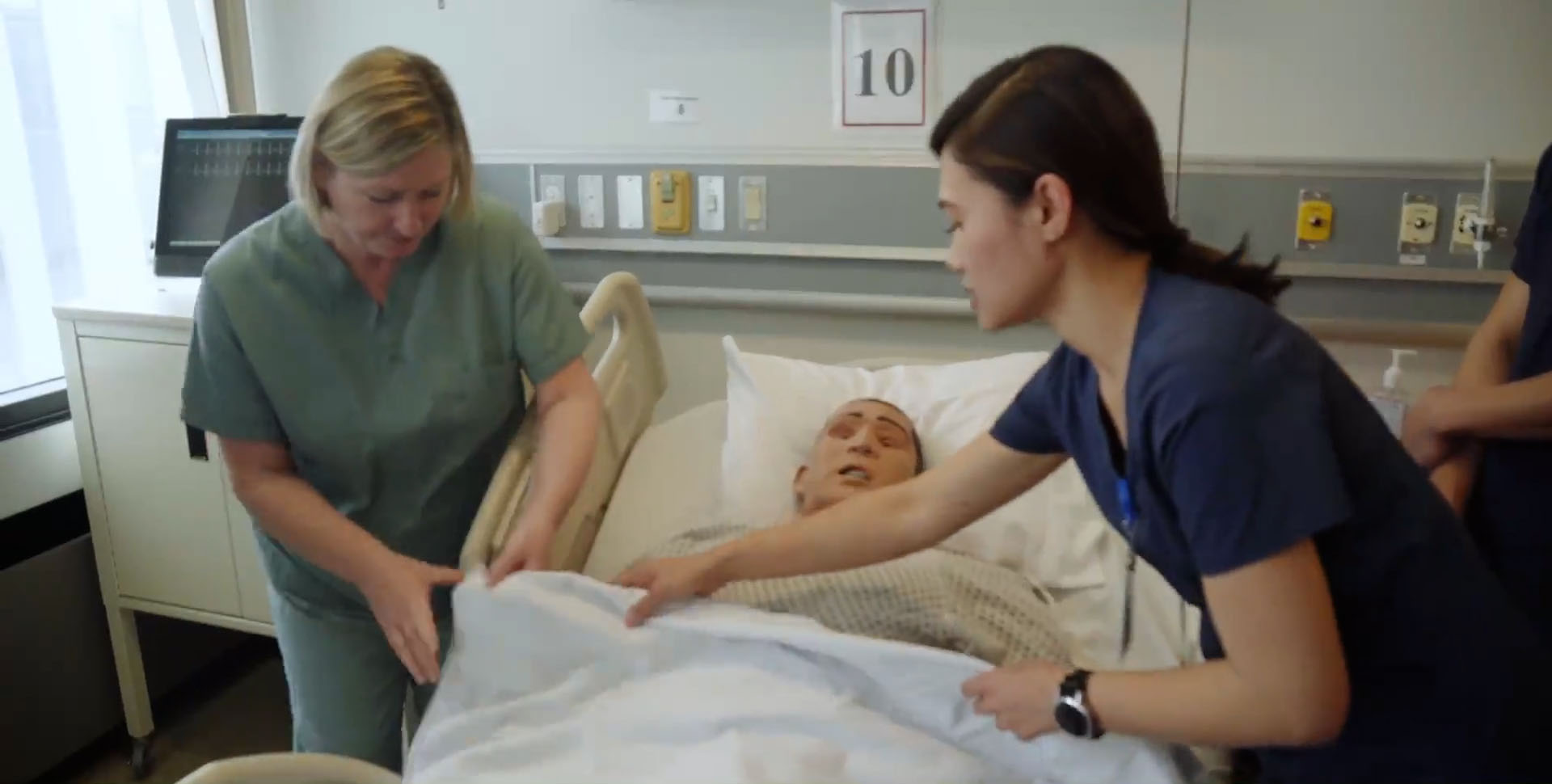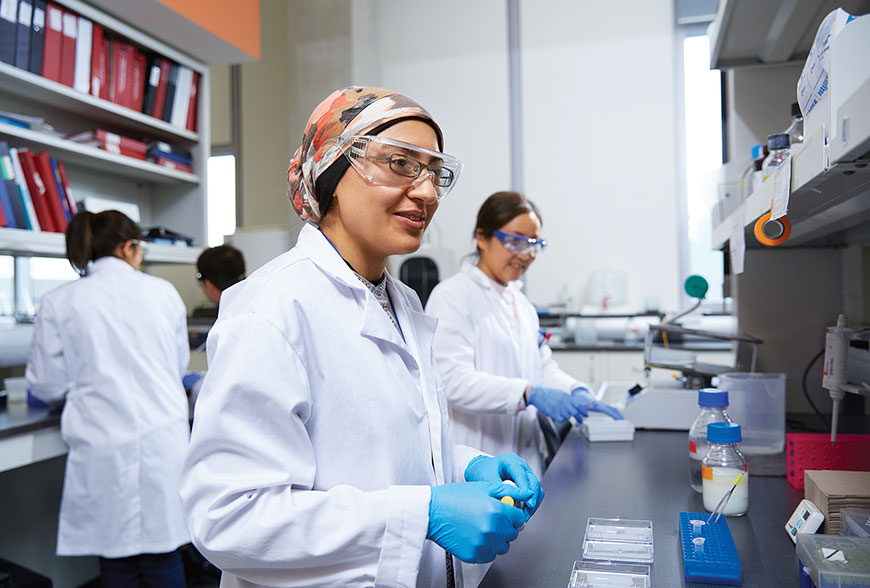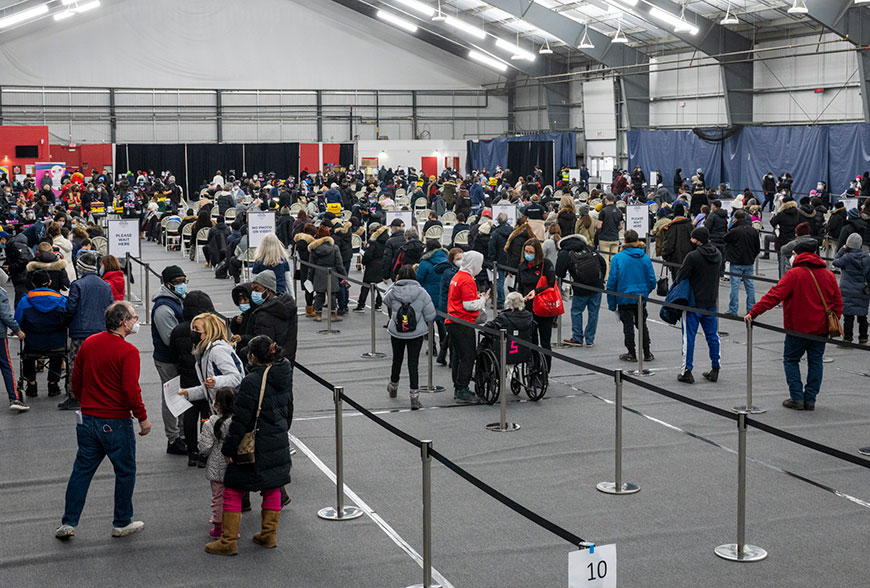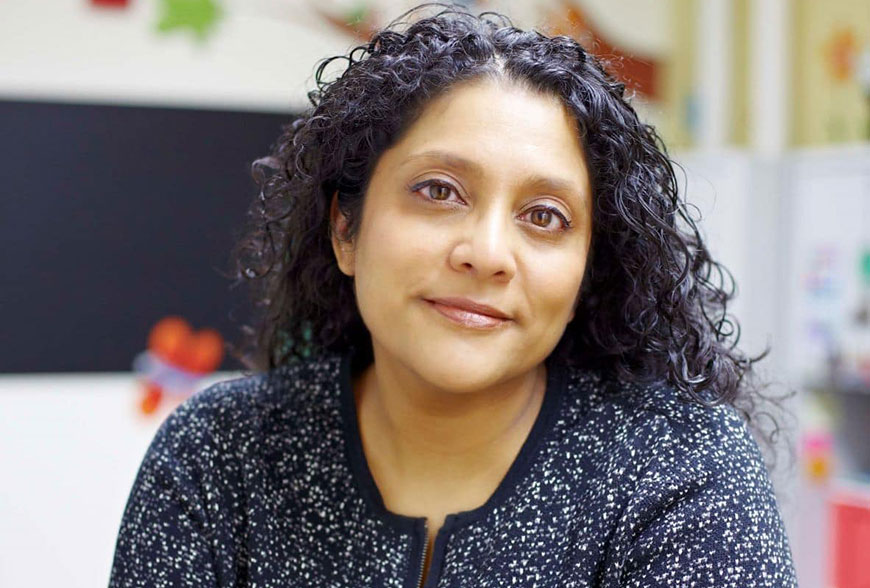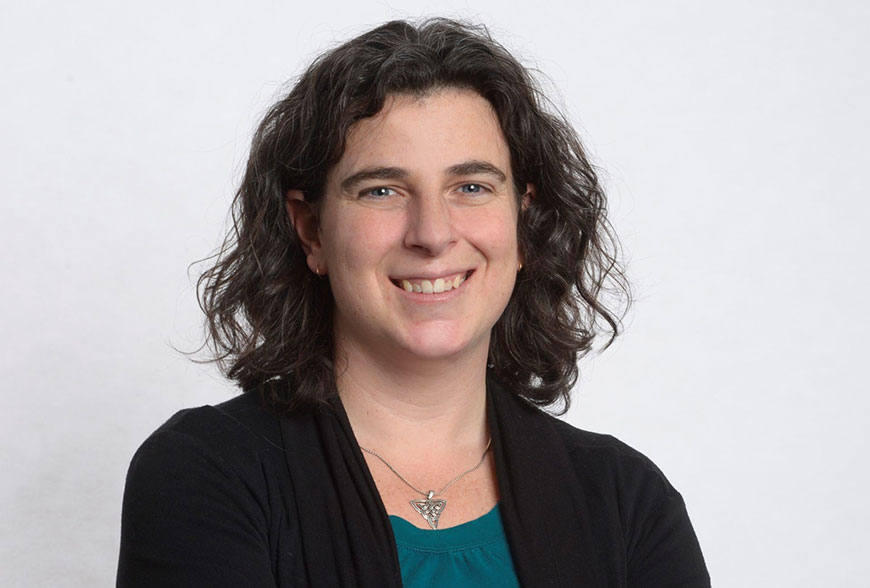Over the past few years, York has intensified its role to support cross-sector collaboration to solve important challenges, build inclusive, resilient and sustainable communities, and plan for an uncertain future that requires adaptability, evidence-informed policy and a nimble workforce.
Over the past year, we have developed critical partnerships to enhance York’s role as an agent of positive change for our students, for higher education and for society at large, including our partnership with the Vaughan Healthcare Centre Precinct to reimagine the future of equitable healthcare and partnerships with local and global community members to respond to the ongoing pandemic.
York also launched a proposal for a School of Medicine, which aims to create the first medical school of its kind in Canada, focused on preparing a new generation of primary care physicians.
$524M
raised for Impact: The Campaign for York University, exceeding original campaign goal of $500M.
360,000
alumni around the world and growing.
1,700
clients vaccinated in one day through #VAXTHENORTHWEST – a partnership with the City of Toronto, UHN and Humber River Hospital.
$61.6M
The amount that York University’s proposed School of Medicine is forecasted to contribute to the GDP, with an additional $4.6M in provincial government revenue.
The Vaughan Healthcare Centre Precinct (VHCP) is a revolutionary partnership between York University, the City of Vaughan, Mackenzie Health and VentureLAB, who are collaborating to transform an 82-acre parcel of land surrounding the Cortellucci Vaughan Hospital into a centre of health care excellence.
The VHCP will become the epicentre for the collaborative development of new programs, data-informed health research and innovation that impacts policy and drives digital health care solutions for a sustainable health care system.
Through VHCP, York has a prime opportunity to establish Canada as a world leader in health innovation while addressing urgently needed areas, including nursing, medicine, digital health solutions and rehabilitation sciences.
York’s expertise in health training and research makes a compelling case for a new School of Medicine, a patient- and community-oriented approach with a focus on equitable primary care that will keep more people healthy longer and living in their communities.
The School of Medicine proposal aims to embed a global population health understanding of the social and economic determinants of health into the curriculum to adopt a seamless continuum of care including prevention through to rehabilitation. Equity, diversity and inclusion will also be core to the program as will be digital health solutions and data analytics to enhance evidence-based innovation.
SDG3: Good Health and Well-being
Throughout the pandemic, York University has leveraged and expanded its existing connections with the provincial government to support the COVID-19 response and ensure the health and well-being of its surrounding communities.
Between March and June 2022, a period in which the York community’s vaccination rate was 97%, the University hosted two GO-VAXX Mobile Vaccination Clinics to help remove barriers to vaccination experienced by local workplaces, faith groups, organizations, and community members.
In August and September 2022, York hosted a series of COVID-19 vaccine clinics on the Keele and Glendon campus and at the Markham-Milliken Children’s Festival.
SDG3: Good Health and Well-being
In March 2022, the Digital, Inclusive, Virtual, and Equitable Research Training in Mental Health Platform (DIVERT Mental Health Platform) received a total of $5.45 million to develop a research and training platform for inclusive and equitable mental health.
Led by Faculty of Health Professor Rebecca Pillai Riddell and a team of eight principal investigators from six Canadian institutions, DIVERT will train Canadian clinician-scientist trainees across multidisciplinary fields including psychology, social work, pediatrics, family medicine, psychiatry, nursing and rehabilitative sciences.
With $2.55 million from Canadian Institutes for Health (CIHR), $2.4 million from IBM Canada for in-kind computing, and $500,000 in-kind support from non-governmental organization partners, the sophisticated learning platform will allow training to be delivered through a variety of free online innovations available to all Canadian researchers from every degree program and discipline.
SDG3: Good Health and Well-being
Professor Jane Heffernan’s expertise in infectious disease modelling was front and center at a June 2022 Parliamentary Health Research Caucus luncheon in Ottawa hosted by Dr. Brendan Hanley, MP for the Yukon. Heffernan, co-director of the Canadian Centre for Disease Modelling and president-elect of the International Society of Mathematical Biology, gave the attendees an introduction to how immunity is modelled, using COVID-19 as the focus of her talk.
A member of York’s Department of Mathematics and Statistics, Heffernan shared her insights with the audience regarding understanding the spread and persistence of infectious diseases in hosts and populations with consideration of factors relating to immunity and behaviour change. As an expert in mathematical models of disease (including COVID-19, HIV, HCV, HSV, TB and influenza) and forecasting health care demand (e.g., ward and ICU hospital beds), her work is advancing the objectives outlined in York’s UAP and Strategic Research Plan that call for building healthy lives, communities and environments.
SDG3: Good Health and Well-being
The COVID-19 pandemic highlighted York’s research expertise in managing and mitigating global health crises. Researchers at York continue to explore creative solutions with transformative technologies such as AI, data science, simulations and other tools to help manage future disasters.
A research team led by Science Professor Jude Kong is using artificial intelligence and data science models to predict COVID-19 transmission in African countries, while Professors Ali Asgary, Faculty of Liberal Arts & Professional Studies, and Jianhong Wu, Faculty of Science, developed a vaccine drive-through design and simulation in Canada and the U.S.
There is an urgent need, as the pandemic has demonstrated, for research, training and knowledge mobilization related to health and other emergencies, which impact different countries and populations disproportionately and further serve to exacerbate existing inequalities.
York is home to several initiatives leading excellence in areas of global importance, including CIFAL York, the Advanced Disaster, Emergency and Rapid-Response Simulation (ADERSIM) and the York Emergency Mitigation, Engagement, Response and Governance Institute (Y-EMERGE).
Each of the initiatives brings interdisciplinary research, community engagement, and evidence-informed decision-making to bear on mitigating, predicting and managing future global health and environmental disasters, including pandemics, food-borne outbreaks and antimicrobial drug resistance.
SDG3: Good Health and Well-being
Learn more about our priorities:
